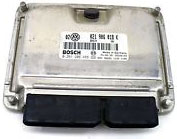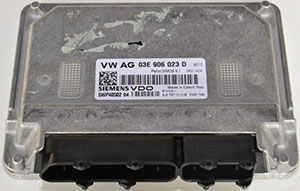Exhaust Gas Recirculation (EGR) systems have been a common feature in diesel engines for many years. Designed to reduce nitrogen oxide (NOx) emissions, EGR systems recirculate a portion of exhaust gases back into the combustion chamber. While this technology has its merits in emission control, many diesel engine enthusiasts and professionals argue that removing the EGR system can bring about numerous benefits, including improved performance and longevity. In this article, we will delve into the advantages of EGR removal for diesel engines.

Enhanced Engine Performance
One of the primary benefits of EGR Removal for Diesel Engines is the potential improvement in engine performance. By eliminating the recirculation of exhaust gases, the engine can operate with a cleaner and more efficient combustion process. This can result in increased power output, better throttle response, and improved overall engine efficiency. Diesel engines without the constraints of EGR systems may experience a reduction in turbo lag and enhanced torque, contributing to a more enjoyable driving experience.
Prevention of Carbon Buildup
EGR systems contribute to the accumulation of carbon deposits in the intake manifold, intake valves, and other critical engine components. Over time, this buildup can lead to reduced airflow, diminished fuel atomization, and impaired combustion efficiency. By removing the EGR system, diesel engines can avoid or minimize carbon deposits, ensuring a cleaner and more effective intake system. This not only helps maintain optimal engine performance but also prevents potential issues such as valve sticking and excessive cylinder wear.
Improved Fuel Efficiency
EGR Removal for Diesel Enginescan positively impact fuel efficiency. Without the reintroduction of exhaust gases into the combustion process, the engine can achieve a more precise air-to-fuel ratio. This optimized ratio promotes better combustion, resulting in increased fuel efficiency. Drivers may observe improved miles per gallon (MPG) and reduced fuel consumption, leading to cost savings over the long term.
Extended Engine Longevity
Reducing the strain on engine components can contribute to increased longevity. EGR systems, over time, can expose the engine to higher temperatures and increased stress. By removing the EGR system, diesel engines operate under conditions that are generally less taxing. This can lead to a reduction in wear and tear on critical components, potentially extending the overall lifespan of the engine.
Minimized Maintenance Costs
With fewer carbon deposits and reduced strain on the engine, the need for maintenance and repairs may decrease. Diesel engines without EGR systems may experience fewer issues related to clogged intake components, exhaust gas recirculation valves, and other associated components. As a result, maintenance costs can be minimized, providing additional economic benefits to vehicle owners.
Commonly Asked Questions
What is an EGR system?
The Exhaust Gas Recirculation (EGR) system is a technology installed in diesel engines to reduce nitrogen oxide (NOx) emissions. It recirculates a portion of exhaust gases back into the combustion chamber to lower peak combustion temperatures.
Why do people consider removing the EGR system?
Some people consider removing the EGR system to improve engine performance, increase fuel efficiency, prevent carbon buildup, and potentially extend the engine’s lifespan. However, it’s crucial to note that EGR removal might not be legal in all regions due to emissions regulations.
Does EGR Removal for Diesel Engines increase horsepower?
EGR Removal for Diesel Engines can lead to increased horsepower in some cases. By eliminating the recirculation of exhaust gases, the engine can operate with improved combustion efficiency, potentially resulting in more power output.
Is EGR Removal for Diesel Engines legal?
The legality of EGR Removal for Diesel Engines varies by region and is subject to emissions regulations. In many places, tampering with emission control systems is illegal. Vehicle owners considering EGR removal should check local laws and regulations before proceeding.
Can EGR Removal for Diesel Engines improve fuel efficiency?
Yes, EGR removal can potentially improve fuel efficiency. Without the reintroduction of exhaust gases into the combustion process, the engine can achieve a more precise air-to-fuel ratio, leading to better combustion and increased fuel efficiency.
Does EGR Removal for Diesel Engines void the warranty?
Modifying the EGR system may void the manufacturer’s warranty, as it involves altering the original design of the engine. Vehicle owners should consult their vehicle manufacturer or dealer to understand the warranty implications before considering EGR removal.
How does EGR removal impact emissions?
EGR removal may result in increased nitrogen oxide (NOx) emissions, as the system is designed to reduce these emissions. This can lead to non-compliance with emissions standards and regulations, making it important to consider the environmental impact of EGR removal.
Can EGR removal cause any negative side effects?
EGR Removal for Diesel Engines may have consequences, such as increased emissions, potential non-compliance with regulations, and adverse effects on the environment. Additionally, some engine control systems may respond negatively to EGR removal, causing issues with performance or triggering warning lights.
Should I consult a professional before considering EGR removal?
Yes, it is highly recommended to consult with automotive professionals or experts before considering EGR removal. They can guide the legal aspects, potential impacts on the vehicle’s performance, and whether it aligns with local regulations.
Are there alternative ways to address EGR-related issues without removal?
Yes, there are alternative approaches to address EGR-related issues without complete removal. These may include regular maintenance, cleaning of EGR components, and using additives designed to prevent carbon buildup. Consulting with a qualified mechanic is advisable for proper guidance.
How can we help?
At ECU Repairs, we not only repair the ecu’s but also carry a large number of units in stock ready to swap and are constantly updating our stock lists to hold the more demand ecu’s and offer our customers a wider range.
With the latest in technology test rigs setup to extensively test all ecu’s as though they were plugged in to the vehicle. We test all ECU units for up to 24-48 hours so we’re able to verify every fault found and also catch out the intermittent faults and possibly any the customer was not even aware of.
Conclusion
While the decision to remove the EGR system from a diesel engine should be made with careful consideration of local emissions regulations and environmental concerns, it is essential to recognize the potential benefits associated with this modification. Enhanced engine performance, prevention of carbon buildup, improved fuel efficiency, extended engine longevity, and minimized maintenance costs are among the advantages that diesel enthusiasts and professionals often attribute to EGR removal. As with any engine modification, it is crucial to weigh the pros and cons and consult with experts to ensure compliance with relevant regulations and standards.


